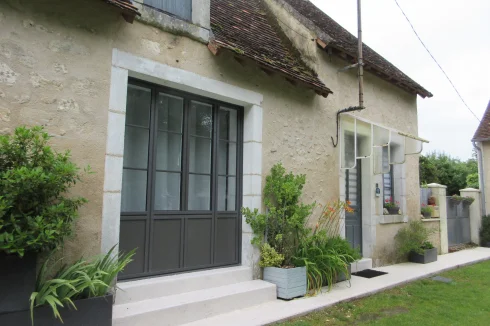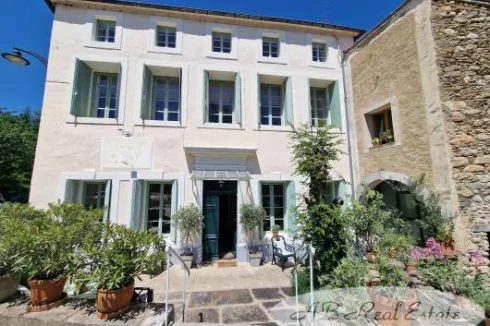New Restrictions on Legal Aid in France
Friday 03 March 2017
There may well be a legal aid system in France, but the rules on obtaining access become more difficult each year.
The system of legal aid in France is called 'l'aide juridictionnelle'.
It is available to anyone who is legally resident in France, whether they are of French nationality and for most types of legal disputes, whether criminal or civil, with assistance to avocats, huissiers and certain experts.
Interestingly, it can also be used for a legal process taking place in another jurisdiction within Europe.
However, access to the system is means-tested, with a sliding scale of support if your income is above the basic income threshold. Each year the system is becoming less generous, despite minor increases in the income thresholds.
The maximum net income in 2017 to obtain legal aid at the rate of 100% for a single person is €1,007 per month. This threshold is increased for a spouse or partner living in the household, and for each of any other dependant persons, such as children.
The reference year for calculating your entitlement is the previous year of your claim, as indicated on your French tax notice. The figure used is your gross income, before allowances. In the past, your net income figure was used.
If your circumstances have changed radically since your last tax return, on an exceptional basis you may be able to obtain assessment based on your current income.
Where your income exceeds the threshold figure you may still be entitled to partial legal aid on a reduced scale.
The following table sets out the maximum thresholds for one person and the rate available at each threshold. Each maximum is increased by circa €180 for each dependant. There are now only three rates available, where previously there were five rates at different income thresholds.
| Monthly Income | Aide Juridictionnelle |
|---|---|
| Up to €1,007 | 100% |
| €1,008 to €1,190 | 55% |
| €1,191 to €1,510 | 25% |
Where you are given only partial assistance you will be obliged to settle all supplementary legal costs.
You can obtain an application form for assistance from a local court or avocat, or you can download it from here.
You would be well advised to get help in completion of the form, or it will be returned to you if found to be incorrect. Indeed, our advice would be to find an avocat you want to act for you and obtain their assistance, or to make use of one of the legal aid centres mentioned below to assist you.
There are frequently publicly expressed complaints from the French legal profession concerning the hourly rates they receive for doing legal aid work, with the result that not all are willing to do so. As a result, you may need to shop around.
If you do not name an avocat on the application form one will be assigned to you.
If you win the case, and you are awarded damages, you may be requested to repay some or all of the legal aid awarded to you.
By contrast, if you lose the case legal aid will not be available for costs and damages payable by you to the other party.
Assurance de protection juridique
It is possible to take out an insurance policy for legal assistance, called 'assurance de protection juridique'.
This cover is often included as an optional extra on your French house or car insurance policy and can be added for very little extra cost.
The range of cover through an assurance de protection juridique does vary between different insurers and policies. Some policies may restrict cover to litigation concerning the possessions or persons covered through the policy - such as your car or your house - while other polices may offer more general cover.
The policies will also have restrictions on the maximum legal costs they are prepared to cover, and some policies set a minimum amount under dispute before the policy can be used.
You will also find that the cover will rarely be operative until you have held the insurance policy for at least six months, and often longer.
The insurance company has no right to impose a particular legal advisor upon you; you are free to choose your own.
Since 2015 it has not been possible to benefit from both l'aide juridictionnelle and assurance de protection juridique. However, if you are refused the latter for the case, you can make application for legal aid, although always subject to means-testing.
French Legal Advice Centres
Throughout France there exists a network of legal advice centres, located in most of the main towns.
These legal advice centres are called 'Conseil départemental de l'accès au droit (CDAD)'. They are public bodies, not charitable organisations.
The operation of the centres does vary, with some offering free advice to anyone living in the department, and others restricting their services to those on a modest income. In general, you should find that if income limits are set they are quite generous.
The centres rely for their operation on the services of avocats, notaires and other legal professionals, who may be available part of the week to offer advice.
Generally, you need to ring up and make an appointment for a day when the relevant professional advisor is present.
You can find details of your local CDAD by visiting French Legal Advice Centres.
In some areas there are Points d’Accès au Droit (PAD), which are smaller local offshoots of CDAD, or Maisons de Justice et du droit (MJD), which are local offices of the justice system.
Next Article: Advertise A Place in the Sun London
Thank you for showing an interest in our News section.
Our News section is no longer being published although our catalogue of articles remains in place.
If you found our News useful, please have a look at France Insider, our subscription based News service with in-depth analysis, or our authoritative Guides to France.
If you require advice and assistance with the purchase of French property and moving to France, then take a look at the France Insider Property Clinic.





